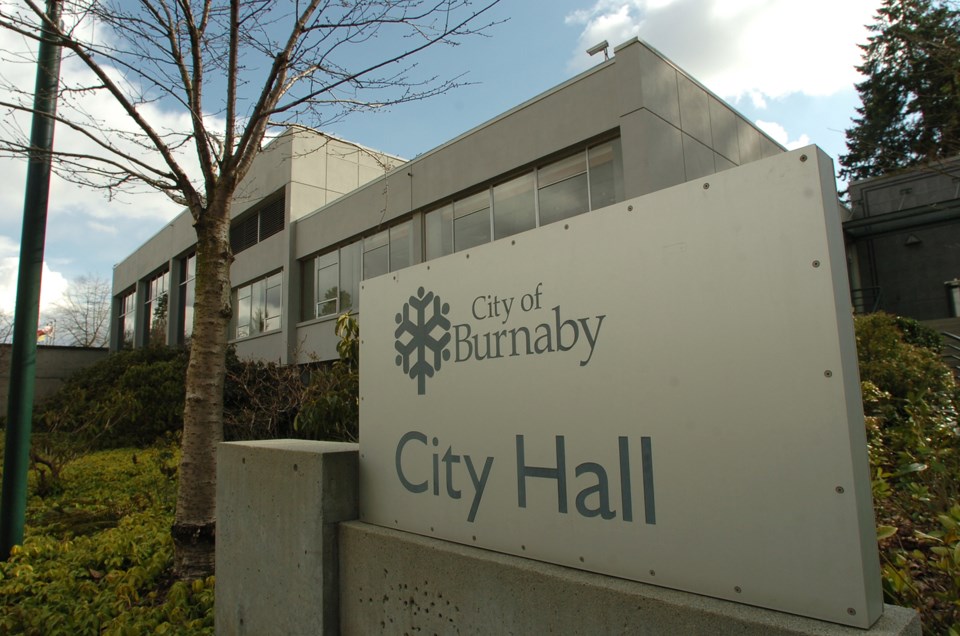Following the tragedy of the railway explosion that rocked the small town Lac-Mégantic in Quebec earlier this summer, Burnaby council wants heavier regulation of the mysterious goods that chug through its own city.
In July, Coun. Nick Volkow asked staff to investigate what dangerous goods are transported on Burnaby's tracks. At the Nov. 4 meeting, the report that came back from fire chief Doug McDonald both surprised and concerned council.
"I think a lot of the information is actually quite shocking, or it was to me, about the absolute lack of cooperation and the lack of information sharing when it comes to the railways," Volkow said at Monday night's meeting. "I'm hoping this report will change that attitude."
The categories of dangerous goods are broken down into nine categories: explosives, gases, flammable liquids, flammable solids, oxidizing substances, organic peroxides, infectious substances, radioactive materials and miscellaneous goods such as farm waste and genetically altered micro-organisms, according to the report.
Volkow also raised his concern over the potential increase in tanker traffic if the Kinder Morgan pipeline is twinned, which could coincide with the elimination of the human factor at the Second Narrows Bridge. Canada National Railway has proposed to eliminate on-site staff by the end of this year and replace them with a remote control automated system at a different location.
"Some folks may not remember, I remember well enough back in 1979 when a tanker, a Japanese freighter going through the Second Narrows in the fog took out that rail bridge," he added. "So I'm a little concerned and I'm going to be asking to get a little more information in regards to ... consequences to eliminating the human element across these bridges."
According to McDonald's report, Burnaby could not get much information on regulated goods and volumes transported through the city because it poses a security risk as it could "fall into the wrong hands."
"Rail carriers are only required to share shipment information with emergency responders if an accident involving rail cars occurs," he states in the report. "But the lack of dangerous goods movement information in advance hinders emergency readiness and timely response by first responders and exposes the public and first responders to greater safety risk."
The information the fire department could get was from the three local petroleum processing/storage facilities.
Chevron receives approximately 45,500 barrels of oil each week by rail, including one to four propane/butane tank cars per day at its refinery site. Shell gets an average 108,000 barrels of finished petroleum products per week. Between Jan. 1 and July 31, Suncor terminal on Barnet Highway received 18,000 barrels of petroleum products per week. The numbers have not been independently verified.
The report also goes through the various railway accidents that have occurred over the last 25 years. From 1988 to 2012, about 133 dangerous goods accidents involving 182 rail cars occurred in Greater Vancouver, according to statistics from Transport Canada.
Two of the incidents were in Burnaby, but both were minor, according to McDonald. In 1996, one involved a drum of flammable liquid and the other, in 1993, was a spilt drum of sodium nitrate.
"Recent train accidents in Quebec and Alberta have clearly highlighted the need for the federal government to improve rail safety in the country and to take on a leadership role to improve communication on dangerous goods transportation to municipalities," McDonald states in the report.
According to McDonald, Burnaby is different because of the number of petroleum facilities on its shores.
"Burnaby is unique among Greater Vancouver municipalities in that it is host to several petroleum facilities," McDonald states in the report. "Although there have been only two dangerous goods accidents in Burnaby in the past 25 years, the expected increase in rail transportation of crude will create greater risk of an accident."
Burnaby Mayor Derek Corrigan said the arrogance shown by the railways when it comes to sharing information is "incredible."
"What we need to do is get our cities together in order to up the pressure in regard to the transportation of goods in our community," he sai. "We need more knowledge and certainly some ways in which these transportation entities provide funding to cities."
Council is requesting the federal government include local municipalities in future rail safety review, and that Transport Canada work with railway companies to give regular reports to local municipalities on shipments of dangerous goods. It is also asking the federal government to enact legislation that would prevent the cost of rail safety and emergency response to come out of municipal pockets.
"You can imagine it if there is a dangerous goods accident here in Burnaby, what pressure that's going to put on our resources in order to deal with it and how much that will cost," Corrigan noted. "And all of us need to be aware of that."



